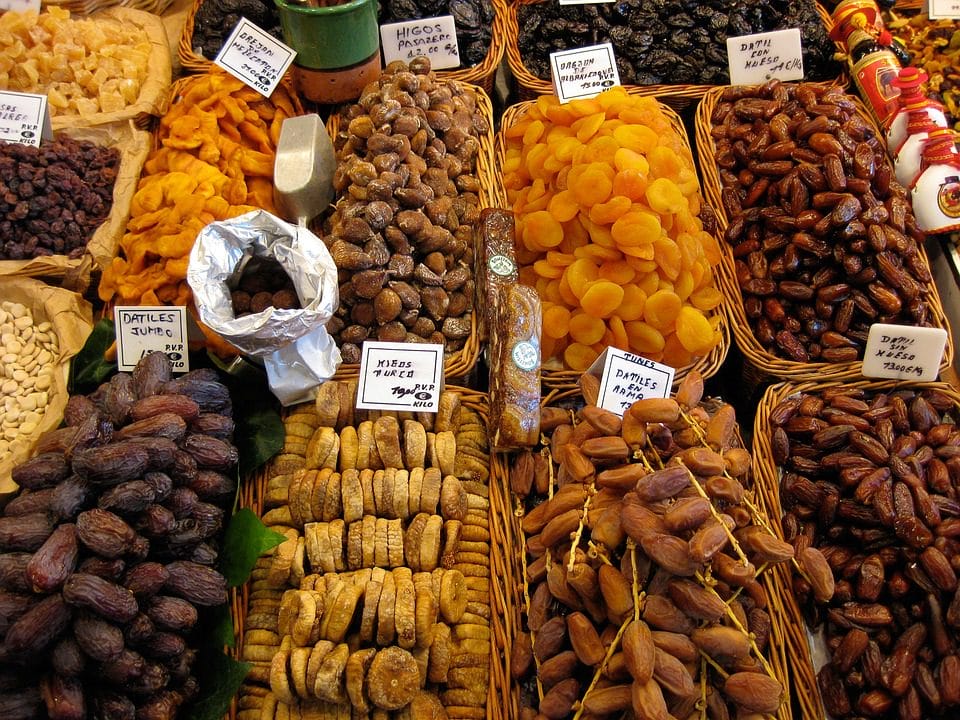Aneesa Bodiat
South Africa

The ameer chewed on the dry date my husband had presented to him, saying a prayer and then placing the chewed fruit back into the container, sealing it for use in a few days when my baby boy would be born. This particular ameer or religious leader was from Medina, the holy city in Saudi Arabia where the Prophet Muhammad ﷺ (peace be upon him) fled when he was persecuted in his home town of Makkah. It is from this place that Islam began to take shape.
Islam is meant to be not just a religion, but a way of life, encompassing many aspects of daily living such as the times and method of obligatory prayers, what we can and cannot eat, how business transactions are done, and more. Apart from obligatory practices, such as praying five times a day, there are countless recommended practices as well, many of which are gleaned from the practices of the Prophet Muhammad ﷺ. Following a practice of the Prophet Muhammad ﷺ is known as following the Sunnah. The chewing of a date by a respected elder, to be placed on the palate of a newborn baby, is a Sunnah.
Safely settled in the hospital room, we prepared to let my little boy taste his first date, which my husband chewed again to soften it. He placed a small dot of the twice-chewed date onto my baby’s palate and we allowed our sleepy baby to enjoy the sweetness of the fruit, satisfied that we had completed a Sunnah.
There are many other religious practices that we perform, without always knowing the exact reasons for the practice. Sometimes the reason is self-evident, with obvious benefits, but at other times faith in a higher knowledge is the impetus for engaging in a religious practice. Islam provides some injunctions that seem to have health benefits, for example the prohibition of consuming pork or alcohol.
Recently I read about a study that shows that giving sugar, or a “sugar gel”, to a newborn protects the baby from brain damage, especially if the baby was born prematurely.1 Therefore in fulfilling the date tradition, I may have been protecting my baby’s blood sugar level; adhering to religious ritual and practicing a medically sound safeguard against hypoglycemia at the same time.
This seemingly coincidental overlap between religious practices and medical remedies happens more often than most would believe. Other remedies found in Islam include the advice to use honey as a healing food. Honey has subsequently been proven to have antibacterial properties.2
Apart from food as medicine, practices such as fasting from dawn until dusk for an entire month may help the body to recover from the constant overwork of frequent eating. Fasting has “been shown to battle chronic disease and even fight aging.”3 Studies have also shown that fasting assists in the effectiveness of chemotherapy.4
The Muslim world boasts of legendary historical figures such as Avicenna and Abulcasis who made important contributions to medical science. Some of the advice passed down through generations of Muslims for over 1,400 years has been proven to be medically sound. Some believe it is only a matter of time before other remedies, known for centuries but unverified by modern science, are given further currency by the stamp of approval of contemporary scientific study. Even if some parts of science remain unknown to us, we practice eternal wisdom with the belief that the benefits are there, even if we have yet to understand the inner workings of all the world.
References
- The University of Auckland “hPOD Study: Preventing low blood sugars in newborn babies.” https://www.auckland.ac.nz/en/about/perspectives/leading-research-and-innovation/hpod-study-preventing-low-blood-sugars-in-newborn- babies.html (accessed February 1, 2017).
- Mandal, Manisha Deb and Mandal, Shyamapada. “Honey: its medicinal property and antibacterial activity.” NCBI. https://www.ncbi.nlm.nih.gov/pmc/articles/PMC3609166/ (accessed February 1, 2017).
- Puig, Oscar. “Healing Cancer on Time: How intermittent fasting may help.” Hope4Cancer Institute. http://www.hope4cancer.com/information/healing-cancer-on-time-how-intermittent-fasting-may-help.html (accessed February 1, 2017).
- Safdie, Fernando et al. “Fasting and cancer treatment in humans: A case series report.” NCBI. https://www.ncbi.nlm.nih.gov/pmc/articles/PMC2815756/ (accessed February 1, 2017).
- Image from https://pixabay.com/en/fruit-dates-food-vegetarian-1919396/
ANEESA BODIAT is a writer from South Africa. She is a Muslim, occasional coffee lover, and sometimes corporate lawyer. She enjoys writing about culture, religion, and how the global economy affects real people. She has a Bachelor of Arts and a Bachelor of Laws, both from the University of Witwatersrand in Johannesburg.
Highlighted in Frontispiece Volume 9, Issue 4 – Fall 2017
